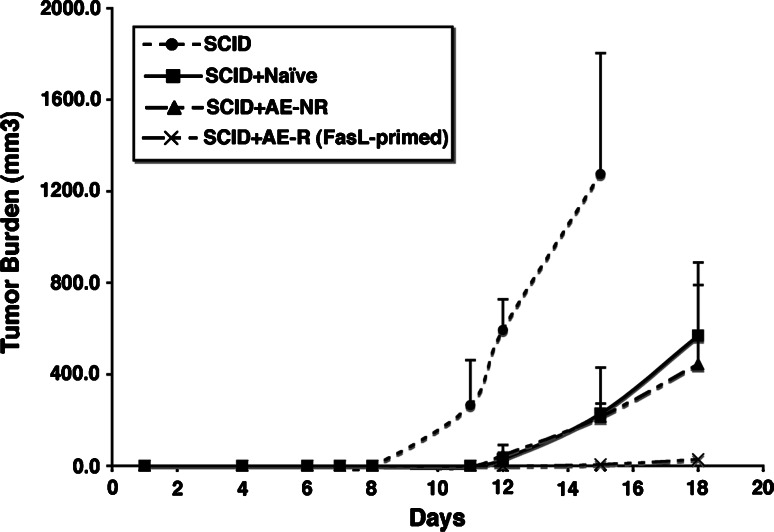Fig. 1.
Deliberate priming induces anti-tumor immunity that can be adoptively transferred by T cells. B6 mice (five per group) were challenged with saline (naïve), with 5 × 105 unmodified LL cells (“antigen-experienced, no rejection” or AE-NR) or with 5 × 105 LL cells infected with adenovirus-FasL (500 pfu/cell, “antigen-experienced, rejected” or AE-R). After 16 days, mice were sacrificed and T cells were purified from the spleen and draining lymph node. These T cells were then transferred into B6 SCID recipients. A control group (N = 9) received saline injections in lieu of T cells (SCID). The experimental groups were adoptively transferred with pooled T cells from each group of B6 mice above (Naïve, AE-NR, and AE-R). Two weeks later, mice were injected with 5 × 105 LL cells subcutaneously in the flank. Tumor growth was monitored by palpation, and palpable tumors were measured across two diameters. At the end of 2 weeks, mice were sacrificed to evaluate T cell reconstitution and lymphoid infiltrates into the tumors. Data show the mean (±SD) tumor burden as measured by volume (mm3). One mouse from the AE-R group that had a palpable tumor (25 mm3) at day 15 was maintained for an additional 4 days before it was sacrificed to assess T cell reconstitution and lymphoid infiltrates into the tumor

